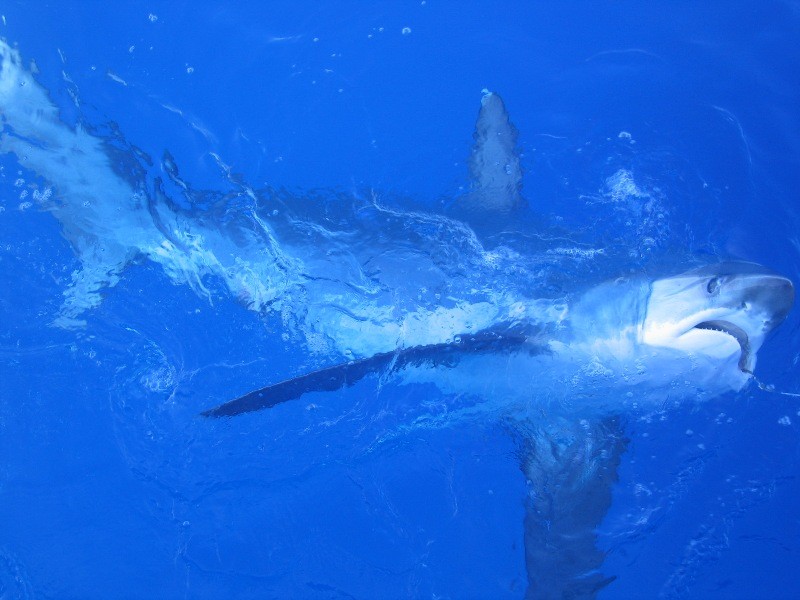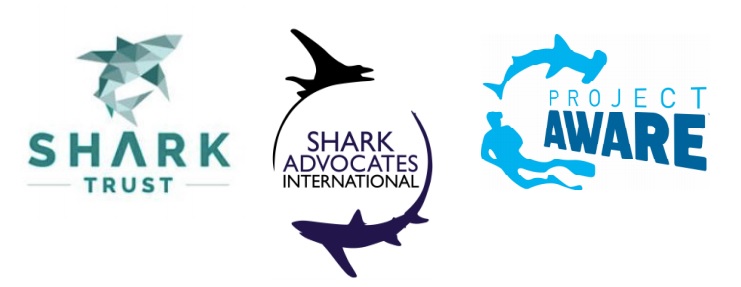New EU Report on Shark Finning Reaffirms Commitment to Strict Rules

The European Commission today released a long-anticipated report on EU Member States’ 2014 implementation of the EU ban on shark finning (slicing off a shark’s fins and discarding the body at sea) which finds few infringements and reaffirms the EU commitment to the most reliable means for finning ban enforcement: requiring that sharks be landed with fins still naturally attached. Such a rule greatly eases enforcement and facilitates collection of key species-specific catch data.
“We applaud the European Commission for underscoring its intention to maintain a strong finning ban for the EU, and also continue to promote the ‘fins-naturally-attached’ best practice approach on a global scale,” said Ania Budziak, Associate Director for Project AWARE. “We are pleased that support for enforceable rules voiced by conservation organizations and members of the concerned public was able to counter industry efforts to weaken the ban.”
EU Member States are required to submit annual reports on their implementation of the finning regulation that include shark landings, inspections, and violations detected. Related compliance issues, as well as the lack of EU catch limits for heavily fished shark species, are cause for concern. Specifically:
- France and Portugal, which ranked 2nd and 3rd among EU countries for 2013 volume of shark landings, failed to report for the 2014 period;
- Spain, the top EU country for pelagic shark take, is among the least likely in EU to inspect catches (only 0.4 times out of 100 in 2014), and yet this low inspection rate detected a finning regulation infraction;
- There are still no limits for the species that dominate EU shark landings (blue sharks, makos, smoothhounds, catsharks).
“We are deeply concerned that the major shark fishing countries of France and Portugal have failed to report on this fundamental shark fishing regulation,” said Ali Hood, Director of Conservation for the Shark Trust. “Moreover, this report underscores the urgent need for additional shark safeguards, particularly catch limits for heavily fished blue and mako sharks.”
Scientists have recommended capping catches of Atlantic shortfin mako and blue sharks, which range across the ocean and are fished by vessels from many nations. While the EU has not yet adopted this advice for its vessels, it has proposed such limits, often jointly with the United States, through the International Commission for the Conservation of Atlantic Tunas (ICCAT). The EU has also joined forces with the US in efforts to secure international fins-attached requirements through ICCAT and most other relevant regional fisheries bodies.
“The combined efforts of the EU and US to champion effective shark conservation measures around the world are vital to securing a brighter future for these vulnerable and often highly migratory species,” said Sonja Fordham, President of Shark Advocates International. “We urge the EU to follow its model finning ban with domestic shark catch limits, and we look forward to working with the Commission and like-minded governments to continue the momentum toward stronger international measures to prevent shark overfishing and finning.”
The European Commission’s press release about the shark finning report (which includes a link to the full report) is available here.
The EU Report can be found on the European Union Law website
Shark Advocates International, Shark Trust and Project AWARE's joint Press Release can be downloaded here.




